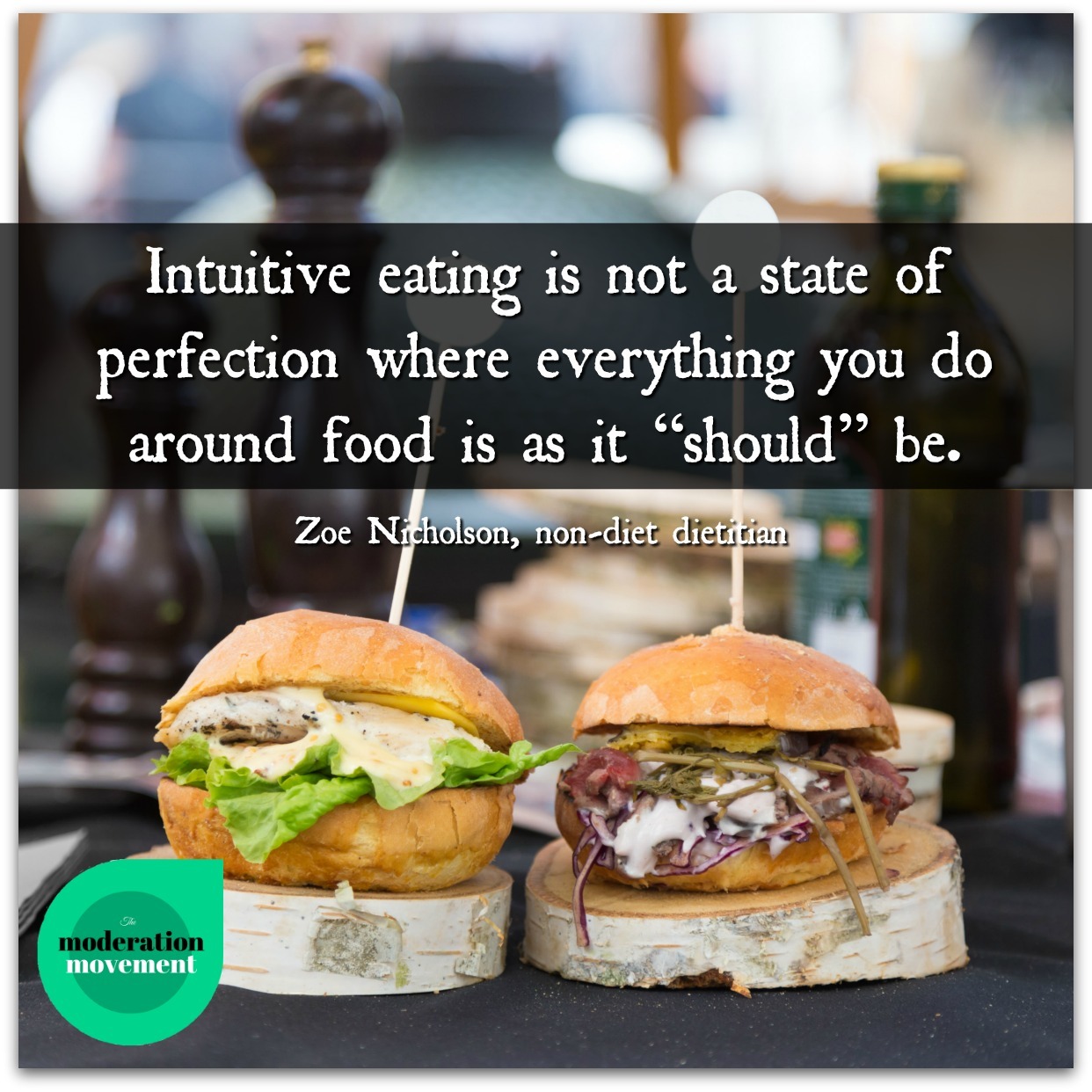Intuitive eating is not a state of perfection

Intuitive eating is not a state of perfection where everything you do around food is as it “should” be.
If you have a few days where you don’t eat much fresh fruit or veg or fruit, this doesn’t mean you’re failing at eating intuitively, it just means you didn’t eat much fruit or veg.
Likewise, if you happen to eat lots of fresh fruit and veggies the past few days this doesn’t mean you’ve perfected eating intuitively, you just ate more fruit and veg.
If you find yourself over-eating at a meal this doesn’t mean you’re not listening to your appetite cues, quite the contrary as you’re aware of your fullness. This also doesn’t mean you’re failing at intuitive eating, it just means you ate past comfortable fullness.
Recognising you’re full and stopping doesn’t mean you’re being good, it just means you wanted to stop eating.
Suddenly finding yourself starving to realise you missed a meal doesn’t mean you’ve stuffed up with eating intuitively – you simply had other things on your mind, or more pressing issues and you didn’t get a chance to eat.
None of the above examples are right or wrong or good or bad, they are just examples of how our eating can vary depending on your current situation, environment, weather, mood etc.
You can be an intuitive eater and experience all of these scenarios. In fact intuitive eating is a very fluid state, it can change day to day or it can look very similar, often it sits somewhere in between.
The difference between the intuitive eating mentality and the diet mentality is the intuitive eater doesn’t judge the eating experience as good or bad, or right or wrong. Without the judgement, shame doesn’t arise which makes it easier to stay attuned and trust your body around food.
Judgement creates shame and shame can disconnect you from listening to, and trusting, your body with food. When this happens, eating intuitively can feel impossible. If you’re struggling with self judgement and shame (feeling bad), please look for a non-diet approach dietitian who identifies as a HAES (Health At Every Size) practitioner.
